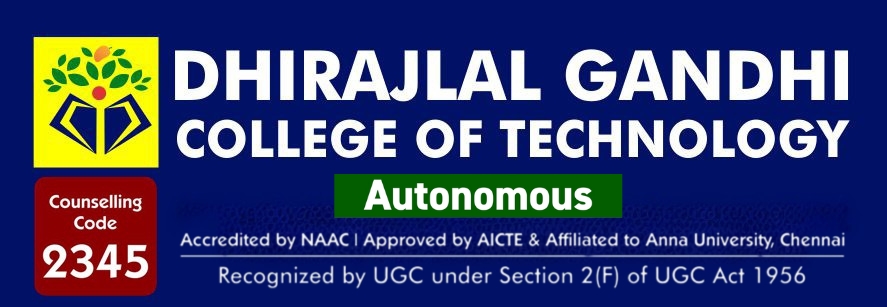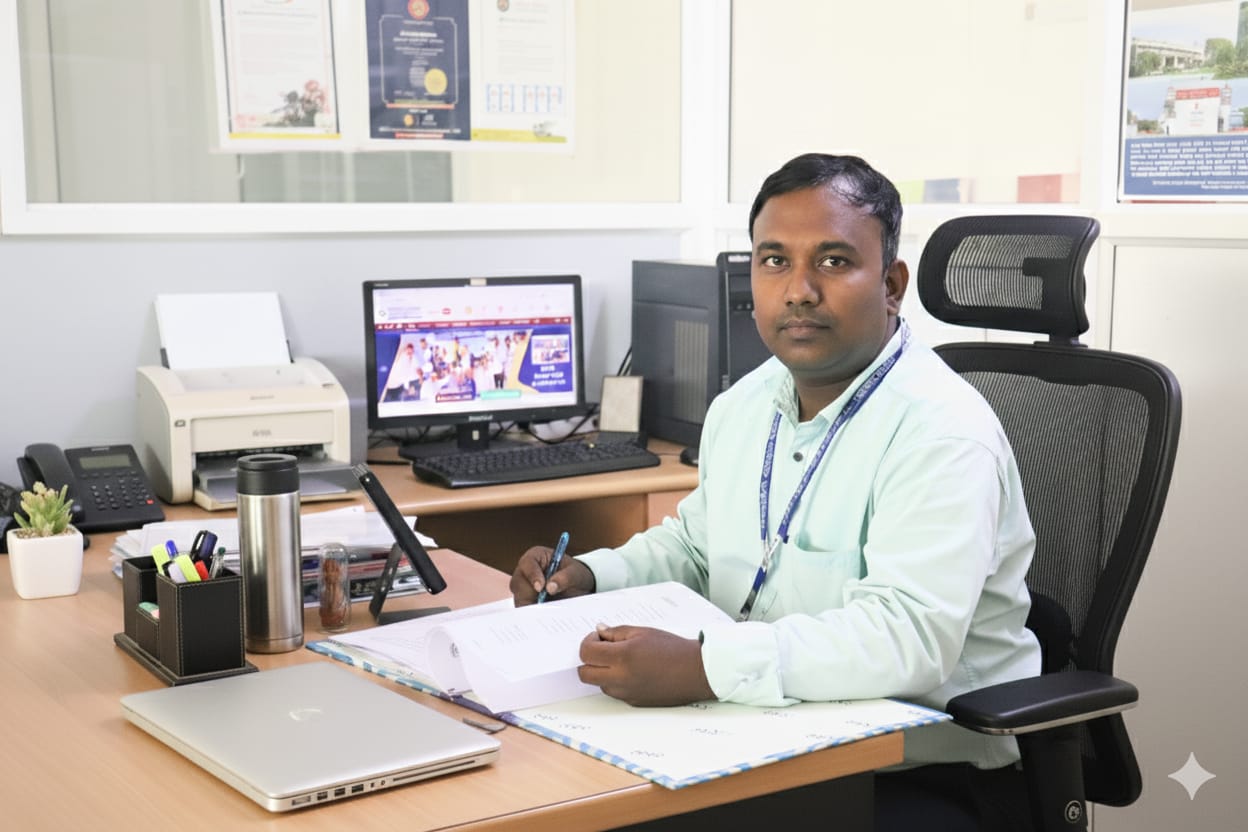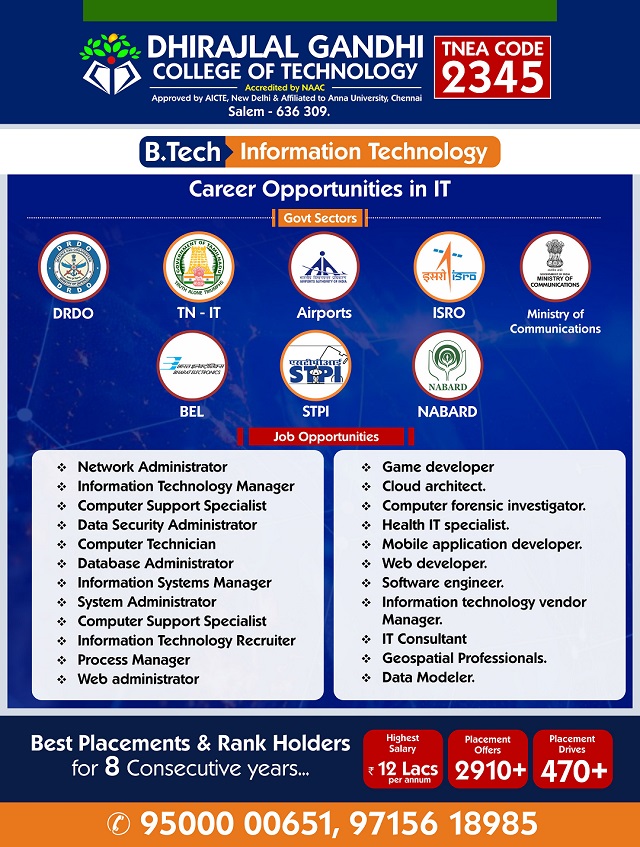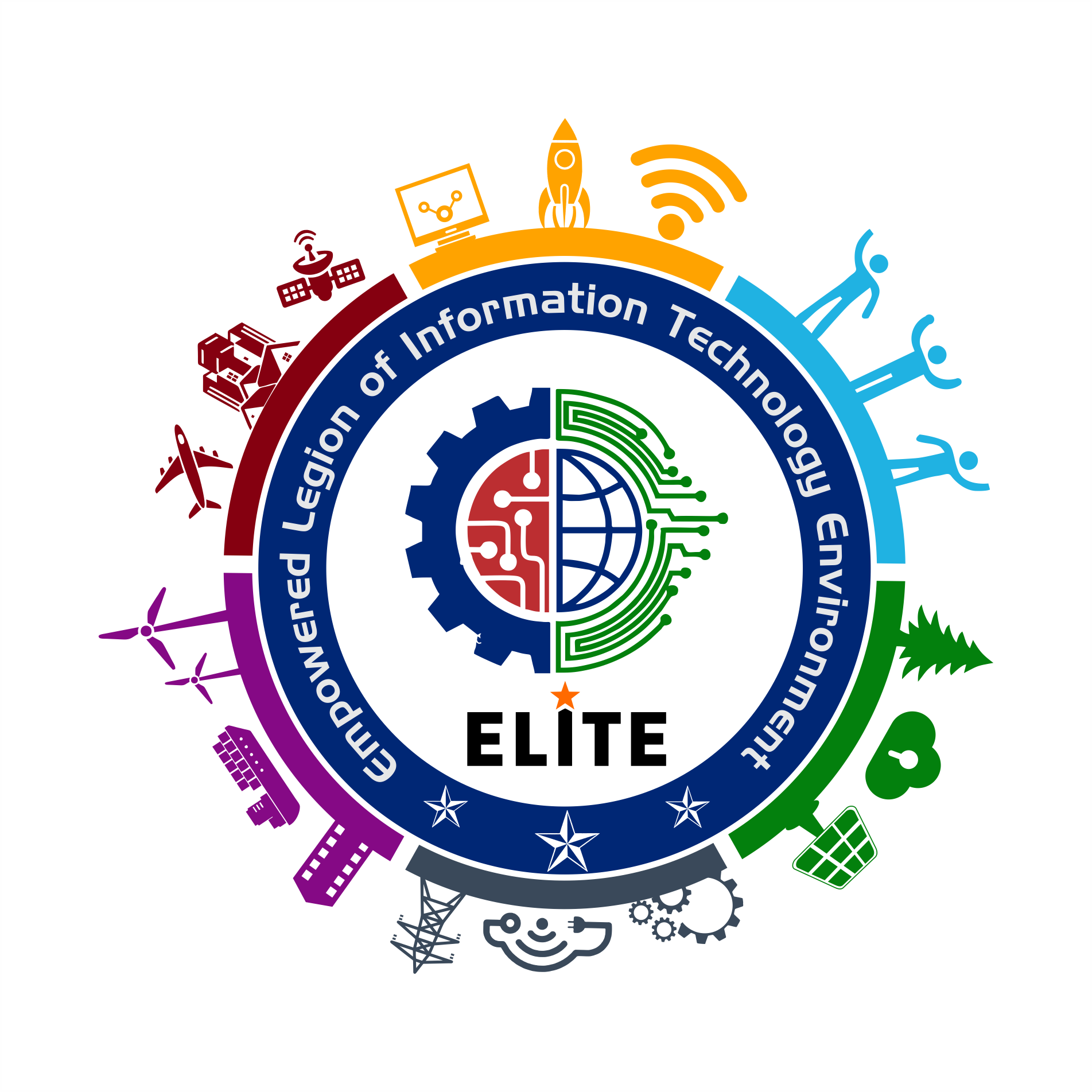
A four-year undergraduate degree (B.Tech) in information technology is offered by the Department of Information Technology, which is established in the year 2022. The Department offers a broad curriculum including: Database Management, Software Engineering, Management of Information Systems, Data mining, Computer Graphics, Advanced Internet Technology, Computer Networks, Machine Learning, Data science, Cyber Security, Operating System, Data Structures and Algorithms as the main courses and other courses in collaboration with the other departments of the institute at the undergraduate level.
To create intellectual IT professional leaders equipped with original thought, ground-breaking concepts and hands-on experience to tackle the worldwide challenges of contemporary Information Technology.

hod.it@dgct.ac.in
| S.No | Faculty Name | Designation |
1. |
Mr.S.Sankar,M.E.,MBA.,(PhD)., |
Head of the Dept |
2. |
Mrs.S.M.Nivetha,M.E., |
Asst Professor |
3. |
Mrs.J.Gulzar begam,M.E.,(PhD)., |
Asst Professor |
4. |
Mrs.G.Sathya,M.E., |
Asst Professor |
5. |
Mrs.A.Malathi,M.E.,(PhD)., |
Asst Professor |
6. |
Mrs.S.Harini,M.E.,(PhD)., |
Asst Professor |
7. |
Mrs.M.Karthika,M.E., |
Asst Professor |
8. |
Mrs.M.Narmadha,M.E., |
Asst Professor |
9. |
Mr.S.Surendran,M.E., |
Asst Professor |
10. |
Mr.P.Senthil,M.E., |
Asst Professor |

 Apply Admission 2025-26
Apply Admission 2025-26

Contact: +91 9629653861
Email: hod.it@dgct.ac.in